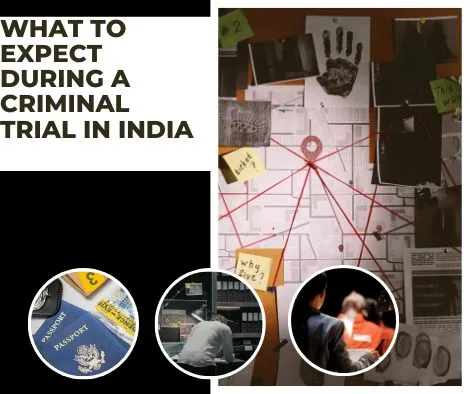This article will guide you through our Basic Legal Strategies For Defending Against Kidnapping Charges In India
Introduction
In India, facing kidnapping charges can be a daunting and life-altering experience. The law takes such accusations seriously, with strict penalties for those found guilty. However, everyone is entitled to a fair defense. This article aims to demystify the legal strategies involved in defending against kidnapping charges under Indian law.
Understanding Kidnapping Under Indian Law
Definition and Types
Kidnapping in India is primarily classified into two categories: kidnapping from India and kidnapping from lawful guardianship as per Sections 360 and 361 of the Indian Penal Code (IPC), respectively. It’s crucial to understand the specific accusation to tailor an effective defense.
The Legal Framework
The IPC, along with the Code of Criminal Procedure (CrPC), lays down the procedure for handling kidnapping cases. The laws are designed to protect the victims while ensuring a fair trial for the accused.
Basic Legal Strategies For Defending Against Kidnapping Charges In India
Gathering Evidence
Collecting Alibis
One of the first steps in crafting a defense is gathering evidence that proves the accused was elsewhere when the alleged kidnapping occurred. This could include witness statements, video footage, or electronic records.
Forensic Evidence
Forensic evidence can play a crucial role in kidnapping cases. It might include DNA analysis, fingerprinting, or digital footprints that can prove the accused’s innocence.
Understanding the Accusation
A thorough understanding of the charges is crucial. This involves scrutinizing the FIR (First Information Report), witness statements, and the prosecution’s evidence to find inconsistencies or procedural errors.
Legal Provisions for Bail
Securing bail is a critical step in defending against kidnapping charges. The accused’s legal team can argue for bail based on the nature of the evidence, the accused’s background, and the likelihood of tampering with the evidence or influencing witnesses.
Challenging the Prosecution’s Evidence
A robust defense often involves challenging the credibility of the prosecution’s evidence. This could include questioning the reliability of witness statements, the legality of evidence collection, and the integrity of forensic procedures.
Conclusion
Defending against kidnapping charges in India requires a comprehensive legal strategy, grounded in a deep understanding of the law and a meticulous examination of all evidence. It’s a process that demands patience, expertise, and a compassionate approach. The aim is not just to navigate the legal system but to ensure justice is served, safeguarding the rights of the accused while respecting the seriousness of the allegations.
FAQ on Legal Strategies for Defending Against Kidnapping Charges in India
1. What is kidnapping under Indian law?
Answer: Kidnapping is defined under the Indian Penal Code (IPC) primarily in two categories: kidnapping from India (Section 360 IPC) and kidnapping from lawful guardianship (Section 361 IPC).
2. Can kidnapping charges be dropped in India?
Answer: Yes, kidnapping charges can be dropped if there is insufficient evidence, proof of innocence, or procedural errors in the handling of the case.
3. How serious are kidnapping charges in India?
Answer: Kidnapping charges are very serious in India, with potential severe penalties including imprisonment, depending on the nature and circumstances of the case.
4. What evidence is crucial in defending against kidnapping charges?
Answer: Crucial evidence may include alibis, witness statements, video footage, electronic records, and forensic evidence that disproves the allegations.
5. Are witness statements important in kidnapping cases?
Answer: Yes, witness statements can be very important, especially if they corroborate the defendant’s whereabouts and actions at the time of the alleged kidnapping.
6. How can I prove my innocence in a kidnapping case?
Answer: Proving innocence may involve presenting evidence of an alibi, challenging the prosecution’s evidence, and highlighting inconsistencies in the allegations.
7. What role do lawyers play in defending kidnapping charges?
Answer: Lawyers play a crucial role by devising a legal strategy, gathering and presenting evidence, and advocating on behalf of the accused in court.
8. Can forensic evidence be used in kidnapping cases?
Answer: Yes, forensic evidence such as DNA, fingerprints, and digital records can be pivotal in proving innocence or guilt in kidnapping cases.
9. How can I secure bail in a kidnapping case?
Answer: Bail may be secured by arguing the lack of a flight risk, the strength of the evidence of innocence, and the character and background of the accused.
10. What happens if I’m falsely accused of kidnapping?
Answer: If falsely accused, you should immediately seek legal counsel to build a defense and work towards disproving the allegations through evidence and legal procedures.
11. Is it possible to challenge the legality of evidence?
Answer: Yes, evidence obtained through illegal means or without proper procedure can be challenged and potentially excluded from the trial.
12. How long does a kidnapping trial last in India?
Answer: The duration of a kidnapping trial in India can vary widely depending on the complexity of the case, evidence, and legal proceedings involved.
13. What is the first step if charged with kidnapping?
Answer: The first step is to consult a legal professional to understand the charges and begin formulating a defense strategy.
14. Can digital evidence be crucial in kidnapping cases?
Answer: Yes, digital evidence like phone records, GPS data, and social media activity can be crucial in establishing whereabouts and intentions.
15. What if the victim claims to have been kidnapped but I have an alibi?
Answer: An alibi can be a strong defense if it conclusively proves that you were elsewhere at the time of the alleged kidnapping.
16. How important is the FIR in a kidnapping case?
Answer: The FIR is very important as it initiates the legal process and outlines the initial allegations and evidence.
17. Can a minor be charged with kidnapping in India?
Answer: Yes, a minor can be charged with kidnapping, but the case would be handled by the Juvenile Justice Board under the Juvenile Justice (Care and Protection of Children) Act.
18. What defenses are available in kidnapping cases?
Answer: Defenses may include proving an alibi, consent (in certain cases), lack of intent, and challenging the prosecution’s evidence.
19. How can I challenge witness credibility?
Answer: Witness credibility can be challenged through cross-examination, highlighting inconsistencies, or presenting evidence that contradicts their statements.
20. What is the penalty for kidnapping in India?
Answer: Penalties vary, ranging from imprisonment of various lengths to fines, depending on the severity and nature of the kidnapping.
21. Can the police search my property without a warrant in a kidnapping case?
Answer: In certain urgent circumstances, the police may conduct a search without a warrant, but generally, a warrant is required.
22. What is the difference between kidnapping and abduction in Indian law?
Answer: Kidnapping typically involves minors and is defined by taking away from lawful guardianship, while abduction is the forceful or deceitful taking of a person against their will, applicable to any age.
23. Can the court dismiss a kidnapping case before trial?
Answer: Yes, if there’s insufficient evidence or significant procedural errors, the court can dismiss the case before it goes to trial.
24. How can public opinion affect a kidnapping case?
Answer: Public opinion can influence the perception of the case but should not affect the legal proceedings. However, it can impact bail decisions and the approach of legal teams.
25. What is consent in the context of kidnapping charges?
Answer: Consent may be a defense in cases where the alleged victim willingly went with the accused, but it’s not applicable in cases involving minors taken from lawful guardianship.
26. Can I sue for false kidnapping charges?
Answer: If acquitted, you may be able to file a lawsuit for malicious prosecution or defamation against those who falsely accused you, depending on the circumstances.
27. How is jurisdiction determined in kidnapping cases?
Answer: Jurisdiction is usually determined by the location where the kidnapping occurred or where the victim was found.
28. Can international laws affect kidnapping charges in India?
Answer: International laws may come into play if the kidnapping involves crossing national borders, potentially involving Interpol or extradition treaties.
29. What role does the victim’s statement play in the trial?
Answer: The victim’s statement is a critical piece of evidence but must be corroborated by other evidence for a conviction.
30. How can I find a lawyer specialized in kidnapping cases?
Answer: You can find a specialized lawyer through legal associations, referrals, or online legal platforms that list attorneys with experience in kidnapping and criminal defense
















